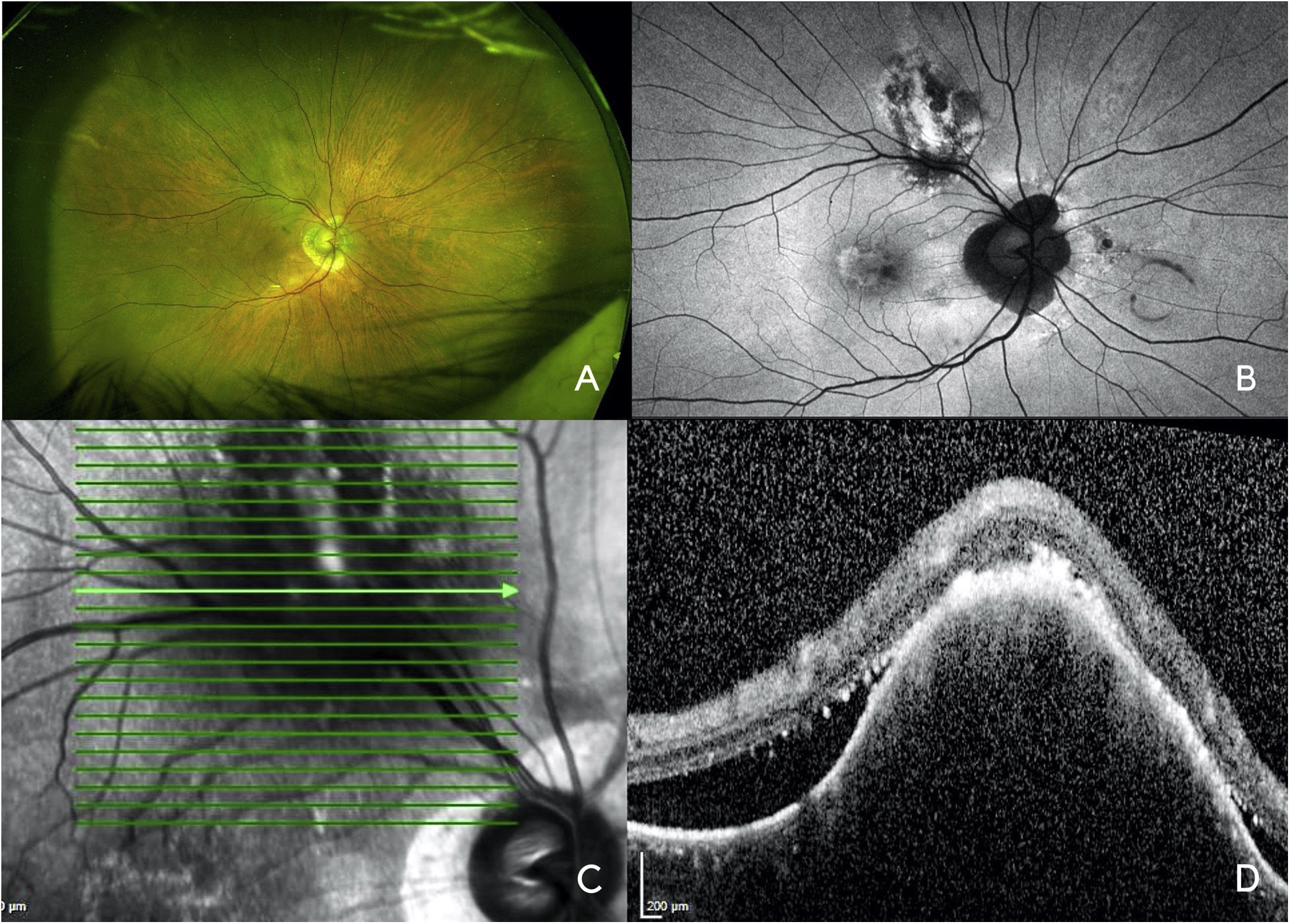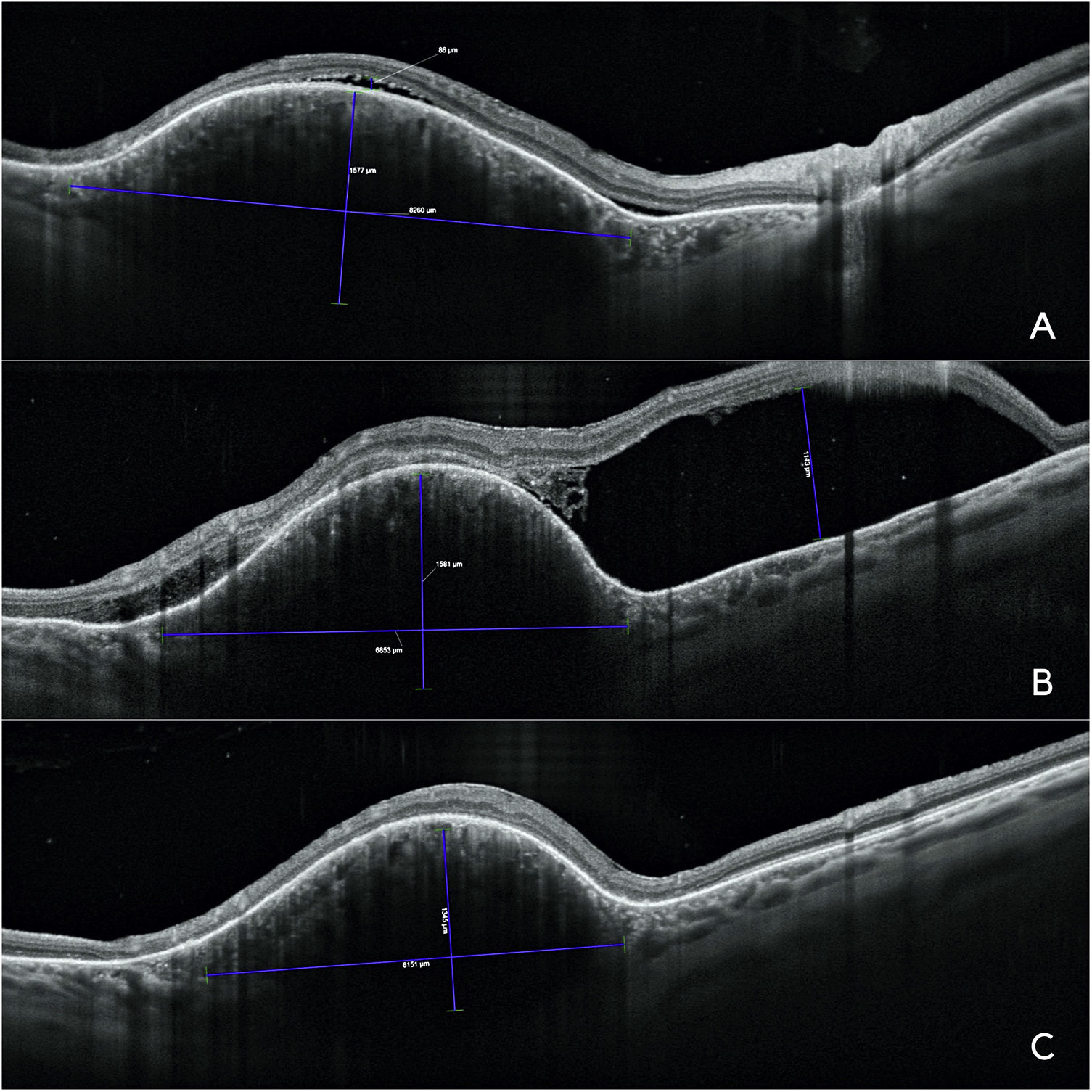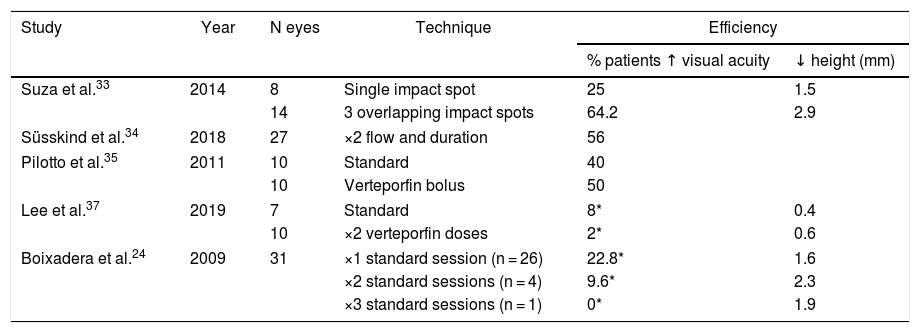Choroidal hemangioma (CH) is a benign vascular tumor dependent on the choroid. Two types of lesions are distinguished: circumscribed (CCH), the most frequent variant, and diffuse (DCH), normally associated with Sturge-Weber syndrome.
HCC appears as an orange mass that can present asymptomatically, however, when it produces symptoms, the most frequent is decreased visual acuity due to neurosensory retinal detachment. Due to its benign nature, only those that produce symptoms should be eligible for treatment. Knowledge of this pathology and its correct differential diagnosis is very relevant to establish the appropriate diagnosis and treatment, avoiding unnecessary treatments. There is currently a wide variety of multimodal diagnostic imaging tests that allow us to identify and adequately monitor this tumor. In addition, in recent years, there has been a change in the paradigm of the treatment of these tumors thanks to the use of photodinamic therapy, which has led to a significant improvement in the visual prognosis of these patients. This has been due to the use of photodynamic therapy as the treatment of choice for HCC.
El hemangioma coroideo (HC) es un tumor vascular benigno dependiente de la circulación coroidea. Se distinguen dos tipos de lesiones: circunscrito (HCC), variante más frecuente y difuso (HCD), asociado normalmente al síndrome de Sturge-Weber.
El HCC se presenta como una masa anaranjada que puede presentarse de manera asintomática, sin embargo, cuando produce síntomas lo más frecuente es la disminución de la agudeza visual debido a un desprendimiento de retina neurosensorial. Debido a su carácter benigno sólo deberían ser subsidiarios de tratamiento aquellos que produzcan síntomas. El conocimiento de esta patología y su correcto diagnóstico diferencial es muy relevante para establecer el diagnóstico y tratamiento adecuado, evitando tratamientos innecesarios. En la actualidad existen una gran variedad de pruebas de imagen de diagnóstico multimodal que nos permiten identificar y realizar un seguimiento adecuado de este tumor. Además, en los últimos años, gracias al empleo de la terapia fotodinámica, se ha producido un cambio en el paradigma del tratamiento de estas lesiones, lo cual ha supuesto, una mejora significativa en el pronóstico visual de estos pacientes. Esto se ha debido al empleo de la terapia fotodinámica, como tratamiento de elección para el HCC.
Artículo
Comprando el artículo el PDF del mismo podrá ser descargado
Precio 19,34 €
Comprar ahora















